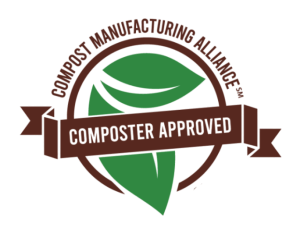Since its inception in 2017, the Compost Manufacturing Alliance (CMA) has required documentation that products submitted for CMA certification meet ASTM laboratory standards for compostability. We have historically allowed other certifications, such as by BPI, DIN Certco and TÜV Austria, in lieu of complete lab reports.
Over time, some of CMA’s interpretations have diverged from other certifiers. (See post “CMA’s Position on ASTM D6868 and D8410”, May 10, 2023). As industrial compostability requirements and laws change and as we learn more about the process and materials, each certifier revises their requirements. CMA does not have input with other certifiers nor do other certifiers communicate their requirement changes to CMA. European organizations certify based on EN13432 which treats coated and multilayer materials and products differently than ASTM D6868. CMA evaluates acceptance standards with the intent of minimizing contamination of compost, including contamination by microplastics. Additionally, CMA requires a specific protocol for total fluorine testing and that the test be performed at a CMA-approved lab. (See post “PFAS: The Importance of Testing Methods”, August 26, 2022.)
Considering these potential variations, effective October01, 2023, CMA will require new sample submissions to provide complete ASTM reports for all evaluated products. We will no longer accept other certifications such as BPI and TUV in lieu of the laboratory reports.
Any products submitted for testing and certification prior to October01, 2023, may still submit other certifications in lieu of full lab reports. However, upon recertification, we will ask for the complete laboratory reports rather than updated certifications. If you have any questions regarding this change, please contact me at janet@composterapproved.com.
